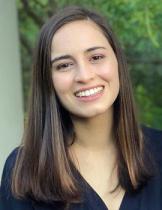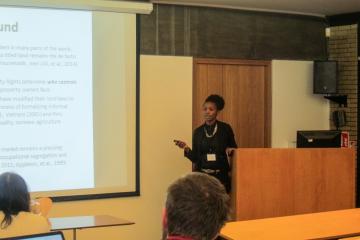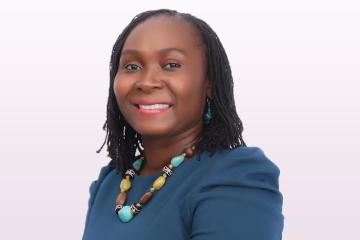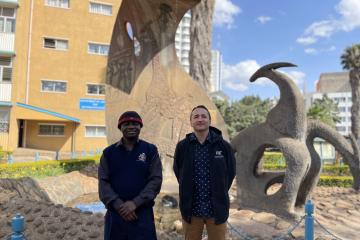
African Scholar Spotlight: Dr. Oluwaremilekun Adebisi
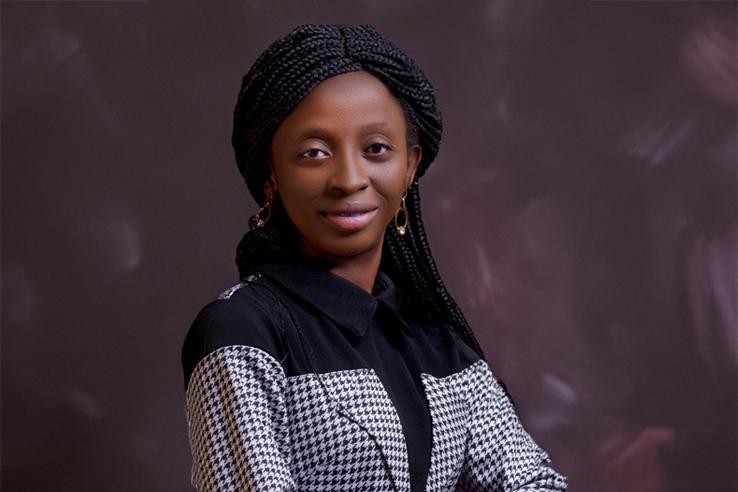
This post is part of our ongoing series showcasing the work and perspectives of economists from the African continent who are leading randomized evaluations. Through our African Scholars Program, we hope to help create more opportunities for African researchers to advance the research agenda on the continent through randomized evaluations. In this spotlight, we speak with Oluwaremilekun Adebisi of the University of Ilorin in Nigeria.
What drew you into the field of development economics and in particular, working with impact evaluations?
One of the things that drew me into development economics was my experience during graduate school, when I worked closely with at-risk people, especially women and rural community dwellers. I could see how they faced diverse challenges: low economic opportunities, lack of education, weak infrastructure, and general livelihood struggles. I felt their pain and their needs deeply, but I didn’t have the immediate capacity to solve their issues.
That’s when I realized that one of the ways I could contribute meaningfully was to become their voice through research, making their challenges visible and recommending practical solutions to policymakers who have the power to implement interventions.
Impact evaluations, especially randomized controlled trials, gave me a rigorous and effective way to test which interventions actually work. For me, it’s about ensuring that policies are not just good on paper, but that they bring real change to people’s lives.
What are your broad research interests?
My research interests are broad but interconnected. They include development economics, gender, women’s empowerment, rural livelihoods, climate change, food security, and financial inclusion. At the heart of them, I am interested in how we can design and test interventions that improve the well-being of at-risk groups, particularly women, girls, and rural households.
What are you using J-PAL initiative funds to do? What research questions are you trying to answer?
I’ve received several J-PAL funding awards:
Using proposal development grant (PDG) funds awarded by the Learning for All Initiative (LAI), I’m working on a project titled “Empowering Girls’ Education in Crisis-Affected Regions of Northern Nigeria through Mobile Learning Initiatives.” This project is testing the feasibility and effectiveness of bringing education directly to girls at their doorsteps through mobile learning. The central question is: Can mobile learning help girls in fragile regions gain consistent access to education despite the crises around them?
Using PDG funds awarded by the Jobs and Opportunity Initiative (JOI), I’m working on a project titled “Breaking Barriers: Soft Skills, Big Impacts — Transforming Women-Led Businesses in Nigeria’s Informal Sector.” With this project, I am exploring which soft skills matter most for informal women entrepreneurs, and whether building those skills can strengthen their businesses and economic resilience. It’s also about learning how to strengthen partnerships that support women in the informal economy.
Both projects are deeply connected to the Nigerian context, where girls in crisis regions risk being left behind in education, and where women entrepreneurs, who make up a large share of the informal sector, struggle without adequate tools to grow their businesses.
What do you see are the big unanswered research questions that RCTs may be able to help answer? Does this relate to any projects you are excited to work on in the future?
A big unanswered question for me is: How can policies and development efforts become truly inclusive of at-risk populations, especially women, girls, rural dwellers, and displaced communities, in ways that improve livelihoods and overall wellbeing?
For example, I’m excited about future projects that test community- and parent-led education models in crisis-affected areas, or how digital financial inclusion tools can help rural women access employment and economic opportunities, particularly in agriculture. RCTs can help explore these questions in a rigorous way.
How can organizations like J-PAL continue to build on the support they provide to local researchers in running randomized evaluations?
The support I’ve received from J-PAL has been truly transformative. It has allowed me to test ideas that otherwise would have remained on paper, provided mentorship and technical guidance, and connected me to a network of researchers who are just as passionate about development. It has also validated my research direction and encouraged me to pursue innovative approaches.
Looking ahead, I believe organizations like J-PAL can build on this support by expanding mentorship opportunities for early-career African scholars, creating more platforms where we can present findings to local policymakers, and supporting small exploratory grants to test feasibility before scaling to larger RCTs.
What advice would you give to scholars who are considering applying to J-PAL for funding?
Be clear and focused about why your research matters. Show how your idea is not only rigorous but also relevant to your local context. Don’t worry about starting small; an exploratory project can be an important first step. Remember, J-PAL is not only looking for polished ideas; they’re also looking for potential. The application process is supportive, and the feedback itself is invaluable.
Early on, I sometimes tried to do too much at once in my funding applications. My proposals were broad instead of zeroing in on one clear question. I also assumed reviewers would automatically see the importance of my research without me making it clear. I’ve since learned that clarity and focus are everything. A strong application is one that communicates a compelling question simply and directly.
What surprised you the most about how the funding process works?
I was surprised in a good way at how collaborative the process is. I expected it to feel like a strict “yes or no,” but instead, it’s very iterative. The feedback from J-PAL was as valuable as the funding itself, and the team, including mentors, were approachable and supportive throughout. It made me realize that funders really do want us to succeed, and that they see themselves as partners in the research journey.
Do you have advice to offer other young aspiring African scholars thinking about a career in economic research?
Yes, stay curious and persistent, but always ground your research in the real challenges facing your communities. The most impactful questions come from the lived experiences of beneficiaries. Build strong technical skills, stay humble and empathetic, and never hesitate to seek mentors or collaborate with peers.
